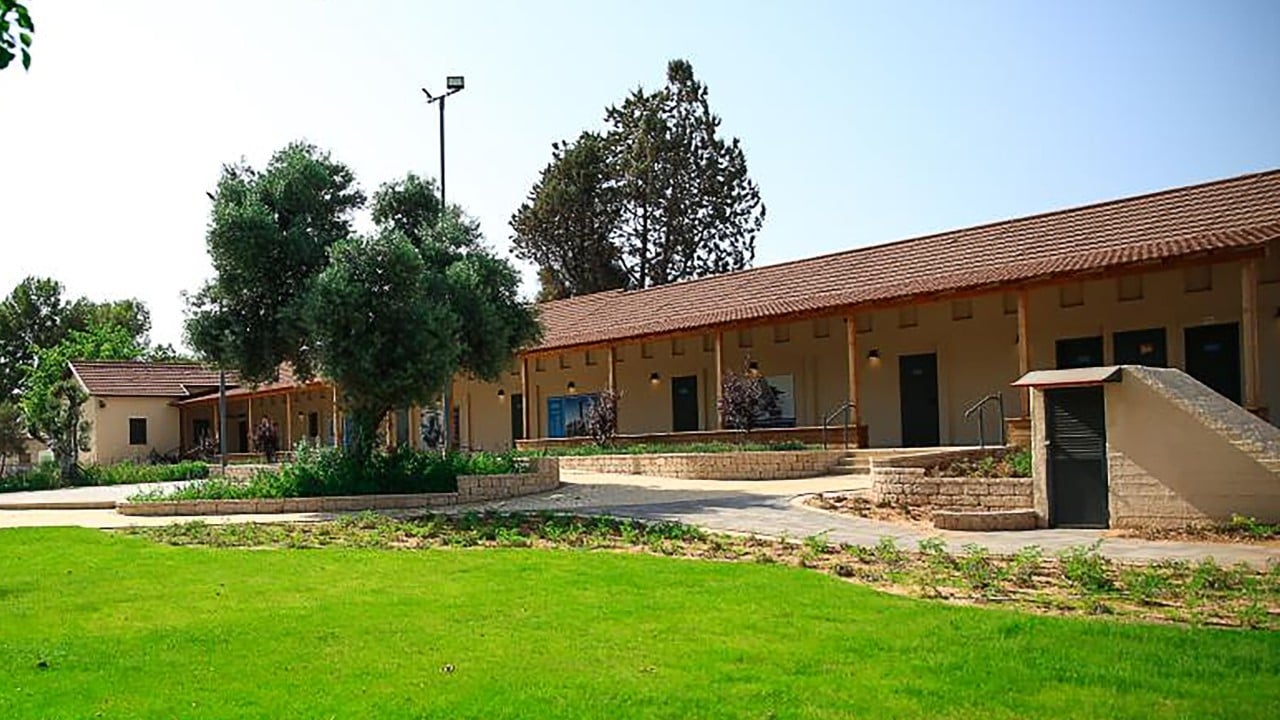The Israeli campus of China’s University of Business and Economics says it will suspend new student enrolments this autumn due to difficulties posed by the ongoing Gaza war.
UIBE-Israel is the only Chinese satellite campus in Israel. Members of its Chinese faculty, who make up nearly half of the teaching staff, have been unable to travel to Israel as it remains at war with Hamas and faces a burgeoning regional conflict.
“Our licence requires us to have a substantial amount of faculty members from China, from UIBE-Beijing. And due to the war restrictions of travelling from China to Israel … we couldn’t fulfil the very basic requirement of [hosting] academics from China,” said Netanel Vaknin, vice-president of operations at UIBE-Israel.
“We are not closing, we are basically postponing now.”
Recent strikes on Israel by Iran and the Houthis, as well as exchanges of fire between Hezbollah and the Israel Defence Forces in Israel’s north, have inflamed already heightened tensions.
Israeli reports on Sunday suggested that Israel expects a response from Iran in the coming days in retaliation for the assassination of Hamas leader Ismail Haniyeh in Tehran, for which Israel has not claimed responsibility.
Israel began its war on Gaza after Hamas attacked Israel on October 7, killing more than 1,200 people and taking over 250 hostages. Israel’s war has so far killed nearly 40,000 people in Gaza, with millions more facing displacement, threat of starvation, and rampant disease as Israel continues to restrict aid into the strip.
Chinese-Israeli government relations have been on the rocks since the war began. Israel has become increasingly impatient with China’s rhetoric on Gaza, namely its repeated calls for a ceasefire, condemnation of Israel’s behaviour in Gaza, and its meetings with Hamas officials.
Last month, Hamas, Fatah and other Palestinian factions signed an agreement to form a joint government following reconciliation talks in Beijing, without saying when or how it would be formed. The United States, Israel and other Western countries have refused to accept any Palestinian government that includes Hamas, unless it recognises Israel.
Vaknin said the suspension of new enrolments at UIBE-Israel was unrelated to political relations between Israel and China. He described people-to-people relations as continuing to grow “tremendously”.
“On [the people-to-people] level, there is no difference at all [since the start of the war]. If I’m an importer in Israel and you’re an exporter in China, who cares what the government thinks?” he said.
China remains a major Israeli trading partner, but bilateral trade and investment have begun to slow in recent years. After years of consistently rising, bilateral trade between Israel and China declined in 2023 by 18 per cent – though analysts say this cannot solely be blamed on the war.
“These last 10 months actually emphasised a huge difference between our country’s values to China’s values,” Vaknin said. “People in Israel are changing their mind from [relations based on] shared values to shared interests.”
UIBE-Israel began enrolling students in 2021. Though it has so far only offered bachelor’s degrees in business administration – issued by UIBE in Beijing – it had plans to expand this to areas including computer science, engineering and communications.
The degree programme includes the study of Mandarin as well as two trips to China throughout the duration of study. Vaknin said the university’s first batch of 20 students would graduate this summer, with another 20 on track to graduate next summer.
Many Israeli students currently enrolled at UIBE have chosen to continue their studies at the campus in China, rather than waiting for the Petah Tikva campus to reopen.
Vaknin said “nobody wanted to close” UIBE-Israel and that government officials on both sides had exhausted every option before concluding it could no longer fulfil its obligations to students. Resumption of operations would only be possible once the war ends, he said.
SIGNAL Group – or the Sino-Israel Global Network and Academic Leadership, an Israeli think tank that has worked with several Chinese universities to boost academic ties between the two countries – has also felt the impact of the war, according to its executive director, Carice Witte.
“We had three faculty slated for our Faculty Fellowship Programme, where Chinese faculty from our partner universities come to [Ben-Gurion University of the Negev] to study Israel studies for a semester. Now, only one is coming,” Witte said. “But two students want to come for a short-term programme that they pay for, so we are helping them connect.
“We still have our Israel studies programmes in China and they are doing well, except they need to make some adjustments to manage in these times. In my view, this is a short- to medium-term situation. The tide will turn and China will move into a new stage regarding Israel.”


